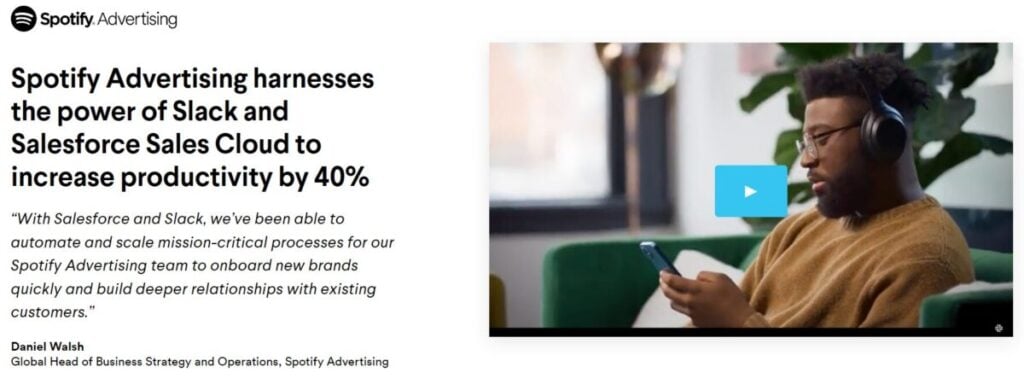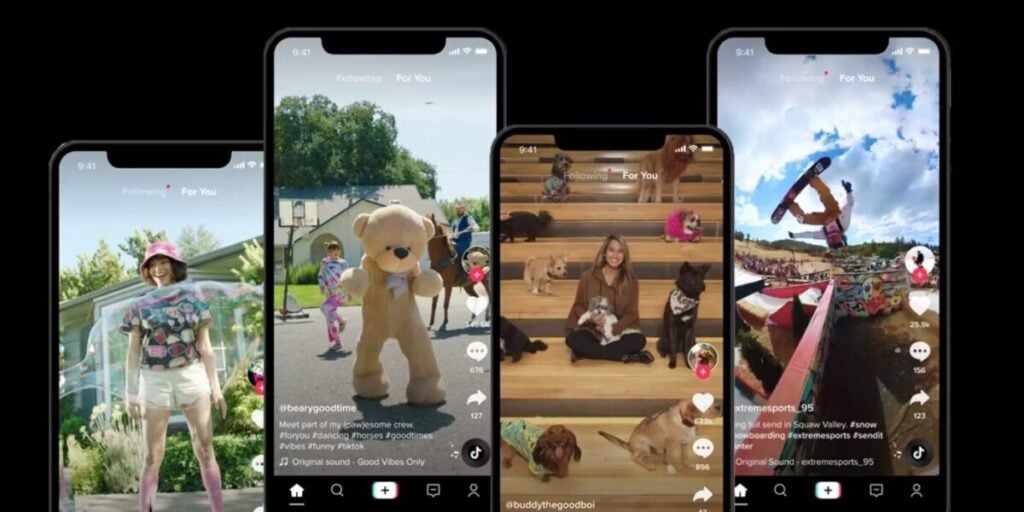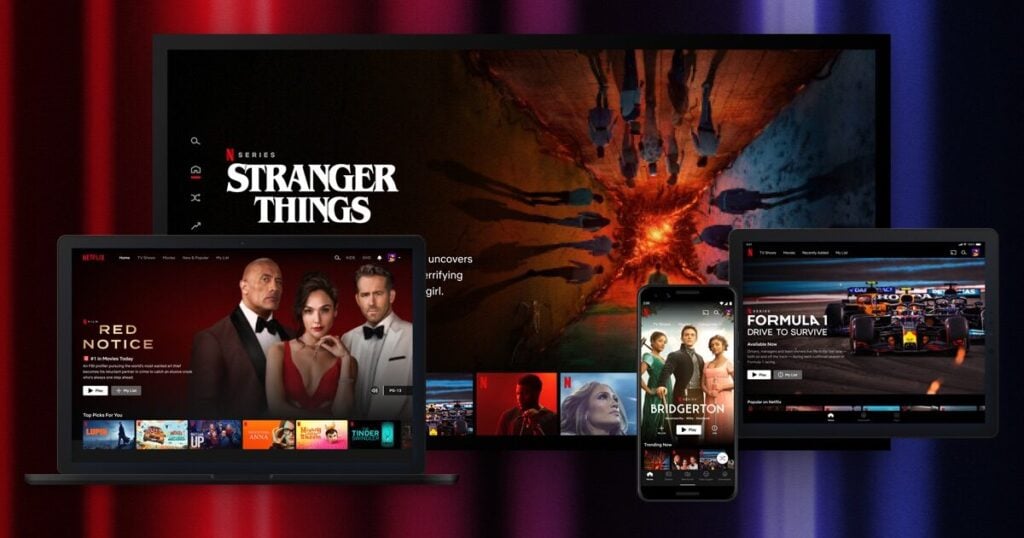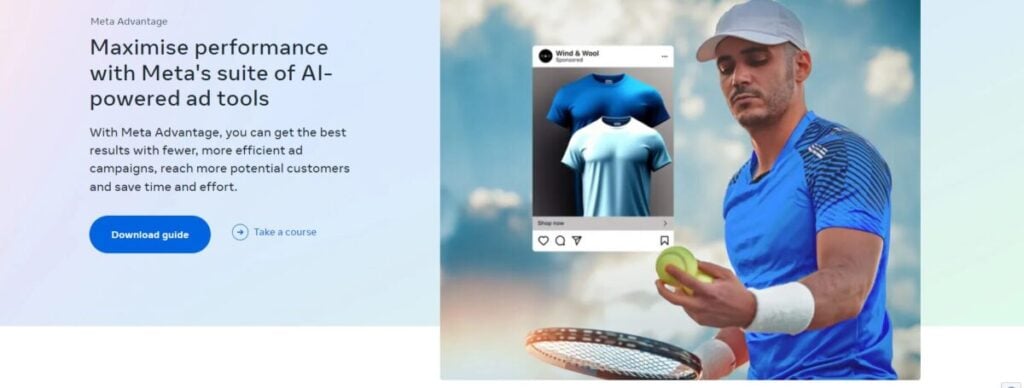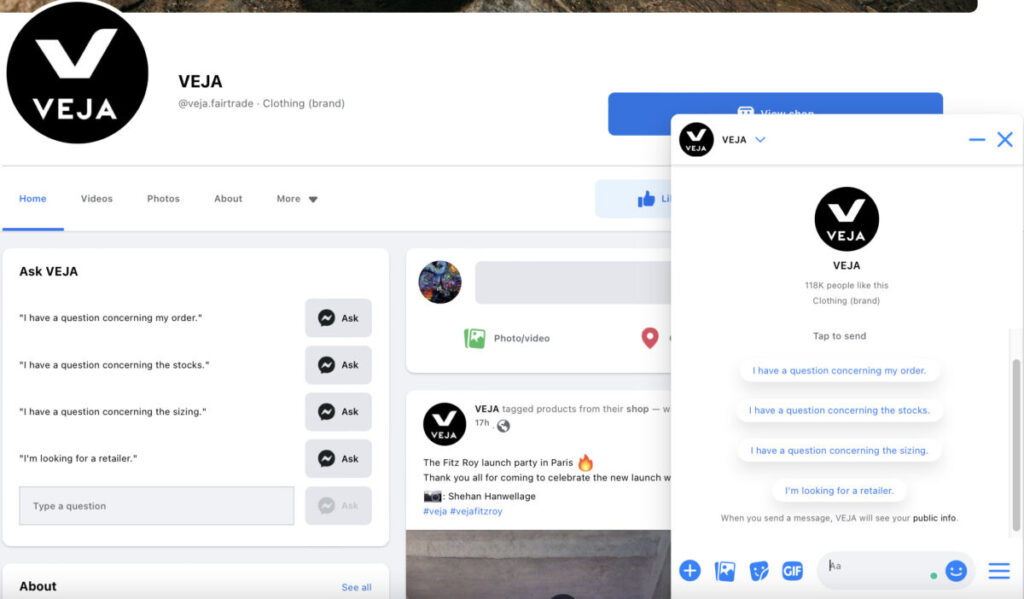If authenticity is crucial in social media, then why is artificial intelligence (AI) so popular?
This question is a good one. It does seem counterintuitive to let AI technology take the reins on social platforms. But if you know when and how to use it, AI can be one of the best tools to optimize your content, increase customer satisfaction, and ultimately boost revenue.
Data tells us just how many believe in its potential and profitability. Our Benchmark Report 2024 shows more than 60% of respondents plan to use AI and machine learning in future influencer campaigns.
Meanwhile, the market size of AI use in social media is projected to reach USD 9.59 billion by 2030. Clearly, the tech is here to stay. It will no doubt change the way we create and interact with content online.
If you’re one of the 5 billion people on earth with a social media account, it’s best to know how to use AI to your advantage. This article looks at how AI has been used in real industry applications and how you can use it to bring out the best version of your content online.
What Is Artificial Intelligence?
Artificial intelligence (AI) refers to technology that allows computers and machines to mimic human intelligence and perform complex tasks all on their own. AI systems do this by studying large amounts of data and recognizing certain correlations and patterns through an algorithm.
The more they learn, the more they’re able to make accurate predictions, reach correct solutions, create automations, and generate quality output without human intervention.
Different Uses of AI in Social Media
From content ideation to customer support, using artificial intelligence for social media has worked for both small-scale businesses and global companies. Let’s explore the various areas where AI proved to come in handy.
Improving Content Creation
When it comes to churning out content, quality is just as important as quantity. It takes a lot of time and skill to brainstorm, execute, revise, and publish work that’s eye-catching and relevant. Even doing one post a day takes a lot of effort. Luckily, AI can assist you throughout the whole creative process.
Depending on what you need, AI can…
- Create a content strategy to guide your posts
- Generate images or text to give you creative inspiration
- Edit and enhance existing images
iHartContent, a small business, was able to reach a six-figure milestone once it started embracing AI for content creation.
“We started using ChatGPT to batch topic brainstorming, assist us in outlining, and do initial rounds of content edits for our clients. That’s an entire workday freed up for tasks like building out our own online presence, client acquisition, and finding new ways to grow my business.” – Lexi Hartmann, Founder and CEO of iHartContent.
Customer Service on Demand
Social media never sleeps. That means anyone could be interacting with your brand at any given time. Responsiveness is a valuable quality for any brand online, which is challenging when social media managers can’t exactly stay glued to their screens all day. But with the rise of automated chatbots, it has become easier for brands to ensure that users are taken care of, no matter the hour.
According to a survey by Forbes Advisor, 73% of businesses use or plan to use AI chatbots. By leveraging these chatbots, businesses can:
- Access cost-efficient, round-the-clock support
- Easily address basic or common customer inquiries
- Have a way to conveniently route more complex user issues to the correct department
Leading brands like HSBC, Chipotle, and Virgin Media use LivePerson, named the #1 Most Innovative AI Company in the World by Fast Company. Their Conversational Cloud platform takes care of user interactions through a rich dataset and AI-powered solutions.
Handling Publishing & Automation
With AI’s ability to optimize and automate workflows, brands can function and plan tasks well in advance. This helps support your social media efforts by making sure content is constantly being published at the best time. With AI, you also get to efficiently manage the workload so the rest of the team can focus on other concerns. AI solutions allow you to:
- Schedule and publish posts weeks or months ahead
- Create customized workflows with if/then commands
Spotify Advertising used Salesforce to do this. They built automated workflows to increase collaboration, which led to a 40% boost in productivity. Plus, they enhanced account engagement with unique consumer journeys delivered through social media and email.
Covering High-Quality Lead Generation
Lead generation involves finding prospects who might be interested in your product and service and turning them into new customers. The process itself involves tedious tasks like gathering consumer information and constantly reaching out with the goal of converting them into successful consumers. This process is time-consuming, often involving repetitive and persistent communication efforts. However, AI can speed up the path to purchase by…
- Using data to provide granular insights and consumer analytics
- Creating a refined campaign strategy
- Analyzing and predicting consumer trends
- Automating and customizing messages from prospecting to customer engagement
- Increasing total lead volume and, in effect, total ROI
Howling Brands Marketing saw the difference that high-quality leads make through Seamless.AI. Instead of going for a general audience, they created a specific target market and advertised to them on Facebook. One high-quality list of leads alone generated $743K in sales, and in a little over a year, the marketing agency had earned $1.7M. Not only did they achieve all this while saving time on manual labor, but they also brought down consumer acquisition costs by 20-30%.
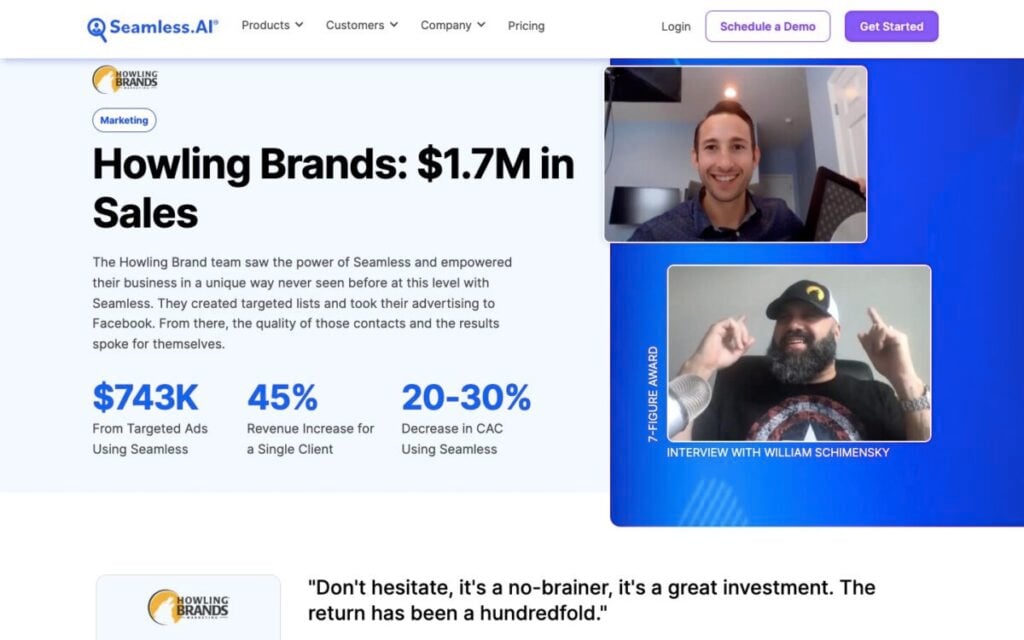
Howling Brands Marketing
Increasing Personalization
According to Salesforce, 56% of customers now expect offers to be personalized. When marketing efforts speak directly to them, they’re more likely to listen. This is understandable given the number of messages that bombard people throughout the day. With AI in the picture, brands can craft personalized messages for their database across multiple platforms at large scales. Here’s an overview of what it can do:
- Create messaging segmentation based on each profile
- Generate unique recommendations
- Leverage events, weather, and other real-time occurrences for hyper-specific messaging
- Generate multiple variations of every campaign
One brand that put this into practice was Canva, an online graphic design tool. They wanted to introduce their huge catalog of new design features and encourage users to try it. With Braze, they created over 650 unique campaigns that showcased more than 75 key product features. And not just that—the key product features recommended were personalized to each user and their design profile. The highly targeted campaign saw a 55% increase in message opens and a 47% increase in clicks.
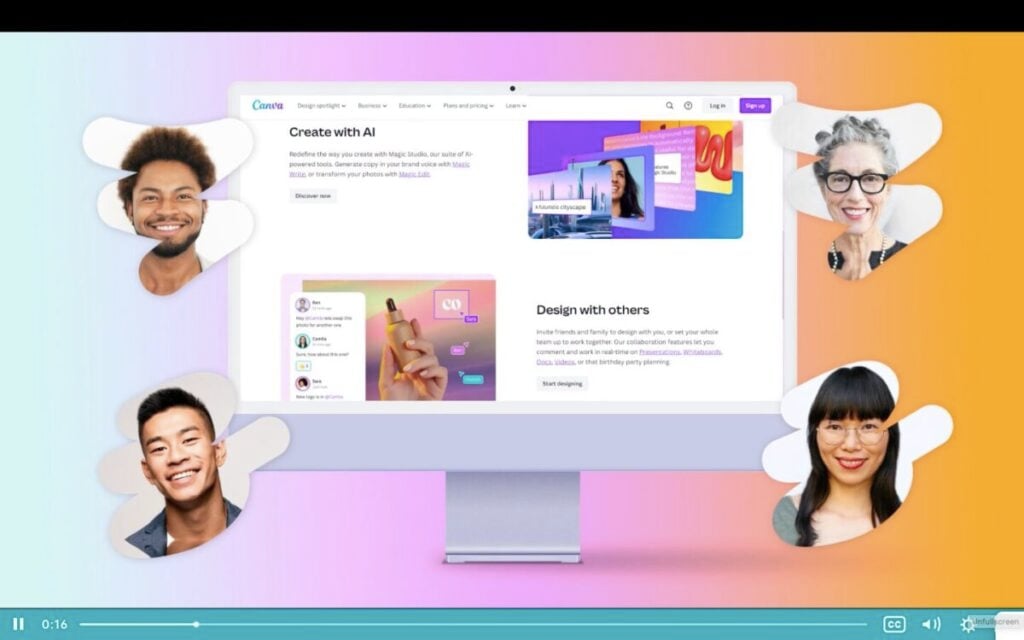
Canva case study
Facilitating Social Listening
Social listening—the process of monitoring conversations on social media—allows brands to really get into the minds of their consumers. By looking at organic conversations, you get an honest view of how real people feel about your brand, a related topic, or even a competitor. This valuable data reveals authentic consumer preferences, motivations, fears, and even insights. Here’s how AI pushes social listening to the next level:
- Identifies motivations, sentiments, and insights in a click
- Analyzes thousands of conversations in real time
- Round-the-clock reports and monitoring for trends and conversations
- Proactive engagement, response, and crisis management
Listening to what your consumers say about you can even help you figure out the best way to speak to them. Just take a look at the Atlanta Hawks, a basketball team that wanted to win their fans’ hearts online. To do that, they needed a social media game changer—Sprout Social. The team monitored conversations their fans and stakeholders were having online and built their social media strategies around it. Because they knew what their audience wanted to see online, the content they produced was always relevant and resulted in impressive numbers. They earned 13.5 million content engagements, a 127.1% increase in video views, and a 170.1% audience growth in just 3 months.
Prompt Sentiment Analysis
AI-powered sentiment analysis examines large amounts of data—from social media sites to everything published on the web—and essentially identifies it as positive, negative, or neutral. It’s able to aggregate different opinions online and summarize them based on the prevailing sentiment. Because the research focuses on the consumers’ feelings, this is sometimes called opinion mining or emotion AI. Check out how sentiment analysis improves with the help of AI:
- 24/7 monitoring
- Sentiment analysis tailored to your brand reputation
- Analytics for data-backed strategies
- Access to the latest marketing insights
- Comparison tools to track sentiments over time
- Recommendations for improved online performance
This is especially useful for improving brand reputation and addressing customer concerns. With the help of Brand24, a fintech company was able to turn around its negative reviews through social listening. They actively listened to what their audience had to say, tracked their feedback, and addressed them promptly with the right strategy. In just a month, 18% of their negative reviews were transformed into praise for their improved customer experiences.

Prompt Sentiment Analysis
Accurate Predictive Analysis
One of AI’s key features is recognizing patterns in large data sets. In social media, AI algorithms can predict a number of things: market trends, consumer behavior, and even consumer preferences. Most of the time, analytics works together with historical data, data mining, and machine learning to identify what type of content will appeal to different types of users. With AI, predictive analysis can…
- Curate personalized algorithms for individual users
- Identify best or worst-performing content based on engagement, product offers, or campaigns
- Recommend strategies based on current market trends
- Understand user preferences as they evolve
Most of the apps we use daily incorporate some kind of predictive analysis into their algorithms. Take TikTok, for example. One of the reasons why it has over 1 billion active users online and has the highest social media engagement rate per post (vs. other social media platforms) is because of the famous TikTok algorithm. What shows up on your For You Page (FYP) is influenced by your behavior on the app, so you see what the algorithm thinks you’ll enjoy most. That’s why no two FYPs are the same and why the content you see always feels tailor-fit for your interests.
Increasing Audience Engagement & Personalization
Another application of AI’s ability to categorize and predict data is its usage in personalization. This has transformed the way consumers interact with bands online. Many of them now expect brands to give them personalized experiences—up to 81% even prefer them, according to data from Forbes. This includes…
- Real-time consumer data analysis
- Suggestions that consider individual demographics, purchase history, and personal preferences
- Unique content, recommendations, and customer journeys for each user
Netflix is a prime example of personalization that works and keeps viewers hooked. Their recommendation system works by analyzing your viewing history and matching your profile with similar titles that you’ll likely enjoy. It’s estimated that this system saves Netflix up to $1 billion per year through subscription retention and engagement.
Highly Optimized Targeting & Advertising
With AI algorithms, ads have the power to be more effective than ever. Not only can it determine the right target audience that’s likely to convert into buyers, but it can also predict consumer behavior. Here’s how AI can drive conversion through targeting:
- Highly specific ad targeting, with filters such as demographic, location, interests, and more
- Data-rich consumer profiles with psychographics and behavioral data
- A/B testing for optimized strategy and content
- Campaign tracking for performance indicators and recommendations
A small business called Ogee Beauty was able to triple their sales by understanding how their target audience responded to their ads. Advantage+ shopping campaigns on Facebook Ads Manager helped them identify which posts would appeal to specific audience segments and even identify potential customers with similar profiles.
“Since implementing these campaigns across Facebook and Instagram, we’ve seen a 50% increase in return on ad spend and a 45% improvement in cost per purchase. We […] are on track for a strong performance this year […] and I attribute much of this success to improved ad performance.”
– Alex Stark, Co-Founder and CMO of Ogee Beauty
Finding the Best Influencers
This one might come as a surprise, but one of the most popular uses of AI in social media is to filter the right influencers. In our Influencer Marketing Benchmark Report 2024, 55.8% of respondents said they would use AI-powered data analytics to identify effective influencers for a particular brand or campaign. This link between AI and influencer marketing tells us this is just the beginning. In fact, we also found that:
- Virtual influencers are gaining popularity with 62.2% of respondents having used them for a campaign
- 58% of respondents were following at least one virtual influencer
Papercup, an AI translating app, uses Brandwatch’s Influence for its influencer marketing solutions. It’s a one-stop platform for managing influencer marketing campaigns, finding the most effective and accurate influencers for brands, and even handling communication. For Papercup, Influence was key to finding the best YouTube channels for their business.
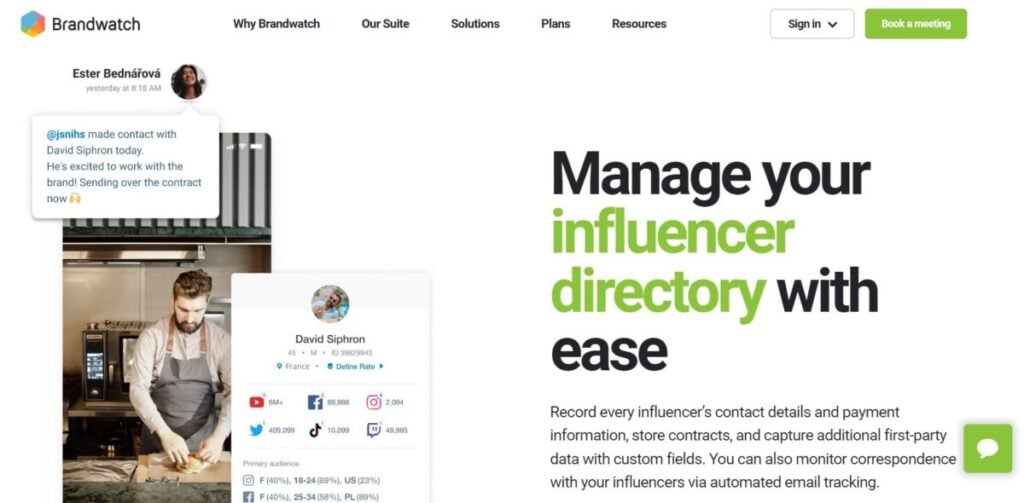
Brandwatch’s Influence
Best AI Tools for Social Media
AI’s growth in recent years is unprecedented, and it’s certainly changed the landscape for many industries. Through AI, the public was given access to tools that can alter, automate, generate, and even predict data within literal seconds! Here, we’ll zoom in on the best tools available:
Jasper for Content Creation
With just one prompt, Jasper can help generate images, videos, and even scripts. The wide range of features is highly useful for any aspect of content creation and can even speed up your creative process by up to 10x.
Other Popular AI Tools for Content Creation:
- NightCafe
- Topaz Photo AI
- Rapidely
Aisera for Customer Service
This is a great option for brands looking for conversational AI software. Seamless customer interactions are automated and programmed to sound more genuine, resulting in service that’s effective, personable, and beneficial for customers.
Other Popular AI Tools for Customer Service:
- LivePerson
- Cognigy
- Rasa
Iconosquare for Publishing & Automation
Delegate your daily repetitive tasks to tools like Iconosquare. It can take care of publishing and scheduling posts, responding to comments, automating reposts, and other functionalities depending on the platform. Plus, if you want targeted insights, it can also analyze your account’s data and statistics to give you personalized reports.
Other Popular AI Tools for Publishing & Automation:
- Brandwatch
- Later
- Hypefury
Seamless.AI for Lead Generation
Seamless.AI has an impressive database that can help you come up with quality leads. They operate with 2.3 billion contact/company records—that’s 157+ million companies—to help you reach all the right people. They also use AI for data enrichment, tracking prospects, and for data set confidence scoring.
Other popular tools to consider:
- Cleverly
- Drift
- LeadIQ
Insider for Personalization
Say the right things at the right time with personalization tools that allow you to categorize each user profile, create different messages for each segment, and suggest personalized recommendations. You can get as specific as you want, filtering according to user profiles or current events like holidays, sports, concerts, and more.
Other popular tools to consider:
- Braze
- Facebook Ads Manager
Brand24 for Social Listening
Brand24’s features include social media monitoring, analytics, and comparison. What makes them unique is that they don’t just stay within social media. They scan all posts throughout the web for every mention of your selected keyword, giving you a thorough sweep and comprehensive summary of the conversations surrounding your brand.
Other popular tools to consider:
- Mention
- YouScan
Sprout Social for Sentiment Analysis
Sprout Social is an expert in social data, and measuring customer sentiment is just one of its many capabilities. It can help you monitor keywords and provide insights to build or enhance brand perception and customer loyalty.
Other Popular Tools to Consider
- Digimind
- BrandMentions
Sprinklr for Predictive Analysis
With AI and historical data, Sprinklr can analyze and predict the potential success of your campaigns. The platform also presents strategies and recommendations based on current customer attitudes, market trends, and other metrics.
Other Popular Tools to Consider:
- SparkToro
- SimilarWeb
Brandwatch for Influencers
An all-in-one social media tool that’s conveniently powered by AI, Brandwatch makes influencer discovery and management much easier. Other features include campaign analytics, engagement metrics, automated reporting, and more.
Other Popular Tools to Consider:
- Upfluence
- LTK
5 Business Use Cases of AI in Social Media
At this point, the value that AI can bring to the equation is already apparent. However, you might still be unsure about exactly how your business can leverage AI for social media. Let’s take a look at the following business use cases of AI in social media to give you some inspiration.
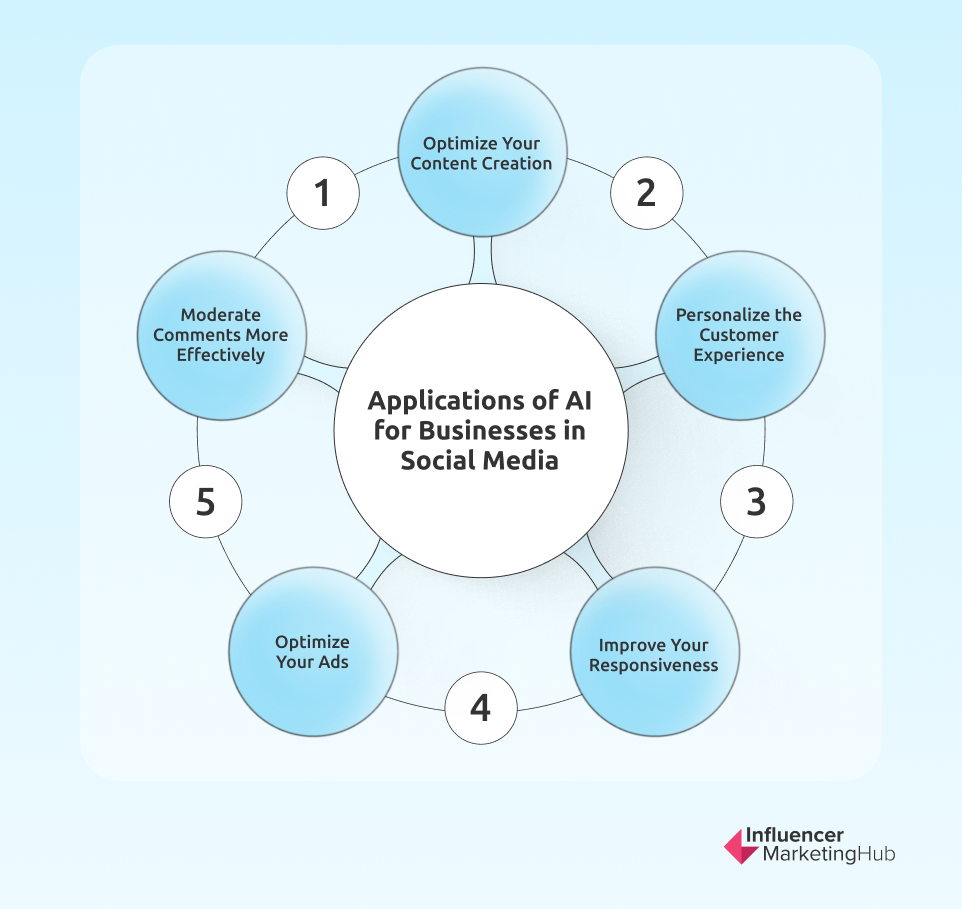
AI Application business social media
1. Optimize Your Content Creation
One of the biggest challenges that brands face with social media is creating high-quality content consistently. Most social media algorithms tend to favor posts that come from accounts that publish content regularly. This means you have to make sure you’re regularly pushing out content so you can gain visibility in relevant feeds and discovery pages.
What makes this even more challenging is that not just any content would do. You need content that’s high-quality both in terms of presentation and the value it offers. As such, brands may lack the resources to maintain a solid social media content strategy and eventually ignore content production altogether. Either that or they’ll make sacrifices in terms of content quality or consistency.
Fortunately, you can now turn to AI to help you with this. Tools like Copy.ai helps you generate text content for social media so you can beat the stress of coming up with new ideas every time. You just need to choose which platform you want to create content for, what points you want to cover, and what tone you want to use. And the tool will automatically produce the content for you.
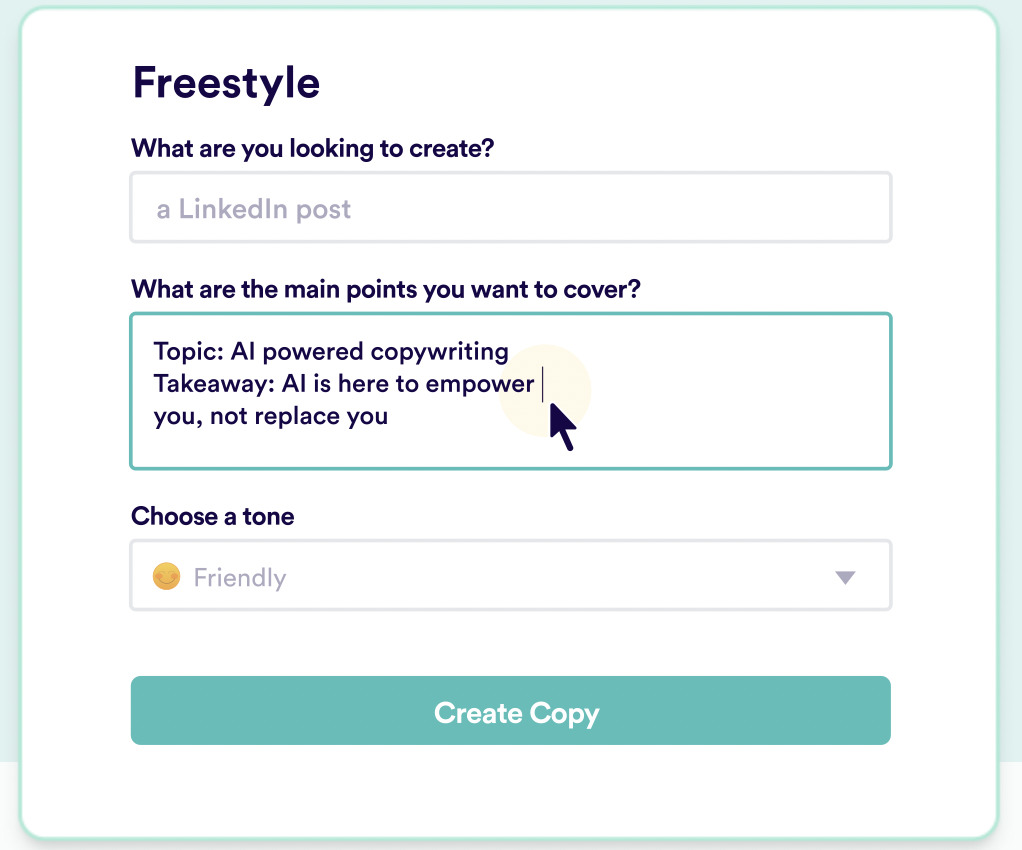
Freestyle example
You can further optimize your social media creatives with the help of tools like AdCreative.ai. This tool automatically creates social media graphics and images based on data so you can generate high levels of engagement. The algorithm makes design decisions informed by the top-performing social media posts and produces creatives that not only look great but can effectively engage your audience.
2. Personalize the Customer Experience
In line with the above, AI can also help you to deliver content that’s more tailored to the needs and interests of your audience. This will help you to create a more personalized experience for people interacting with your brand on social media.
AI-powered social listening tools will keep track of customer conversations across social media and make accurate predictions about upcoming trends. Moreover, these tools will also give you an idea of your target audience’s needs, preferences, and pain points. This will allow you to tailor your content to address them so you can add more value to your audience.
AI chatbots also help to further personalize the experience with conversations tailored to the unique needs of each user. From personalized greetings to pulling up customer and order info–these chatbots can be integrated with your CRM and data systems to personalize each interaction.
With the combination of tailored content and personalized interactions, you can significantly enhance people’s experience when interacting with your brand. For potential customers, this means an increased likelihood to go through with their purchase since they’re getting the kind of information and help they need. For existing customers, this could potentially lead to repeat purchases as they may feel more inclined to come back.
3. Improve Your Responsiveness
With more and more people using social media, it has also become a norm for customers to use social media as a channel to get support. In fact, McKinsey reports that 81% of consumers won’t recommend a brand at all to their friends if they reached out for support on social media and didn’t get any response. Moreover, customers tend to spend 20-40% more on brands that respond to their social media customer service requests.
And it’s not just any kind of support that these consumers are looking for; they’re expecting fast responses from brands. According to McKinsey, 40% of consumers expect a response within the first hour. This is where chatbots come in, giving you the ability to quickly respond to your customers even if your representatives aren’t currently available.
You can set up AI-powered chatbots to respond to customers seeking support through your social media accounts. These chatbots can be the initial point of contact, providing instant responses to commonly asked questions. Alternatively, the chatbots can also direct customers to the right department by asking them an initial round of questions to understand their needs.
For example, VEJA has a chatbot on Facebook that provides customers with an option to initiate a conversation depending on their concerns. This not only allows for instant responses but also makes it easier for customers to reach the department they need.
4. Optimize Your Ads
With a decline in organic visibility, brands are increasingly turning to paid advertising to reach the right audience on social media. Unfortunately, many brands also struggle to get the most out of their advertising investment. As a result, they lose their precious resources and marketing dollars on ads that don’t really deliver.
The good news is that there are AI tools that can address this challenge in several ways. First of all, AI can help you determine which social media users are most likely to buy from your brand. You can then deliver highly relevant ads to them using the social media platforms they use the most. This means you can effectively improve your targeting by identifying the best possible interests and keywords.
Another popular use of AI is in writing social media ads. You can find AI tools that will make recommendations on the languages and messaging that will deliver the biggest impact. This can then be used to craft powerful ads that get people to click and make a purchase.
For instance, Phrasee is an AI platform that uses natural language processing to create on-brand marketing messages for social media and beyond. It comes with dynamic optimization features that will let you optimize your messaging in real time so that your social media ads generate better results. Phrasee even monitors the performance of your campaigns to determine the type of language that works best with your audience.
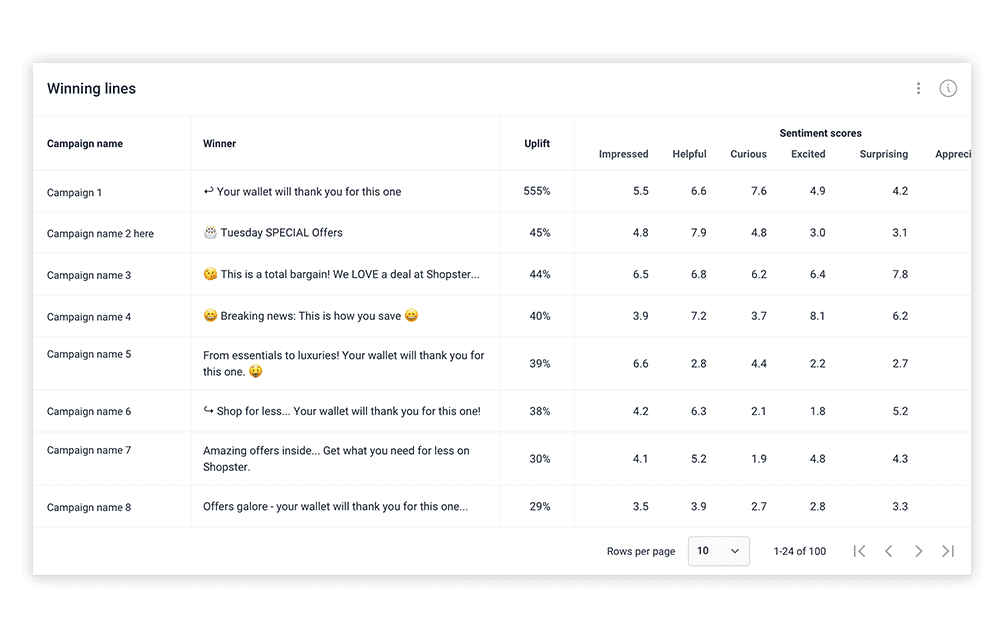
Phrasee content help example
5. Moderate Comments More Effectively
Social media isn’t always sunshine and rainbows, and you’ll experience your fair share of abusive and hateful comments that can dampen the user experience. Moreover, there’s an abundance of bots that leave spam comments or try to scam your followers. This can be particularly detrimental to brands since the goal is to build a social media community that’s wholesome and engaged. That’s why you have to closely monitor your comments section and quickly remove anything that could negatively affect people’s experience.
The problem is that this can be extremely time-consuming. You may be able to set up alerts and get notified of any new comments on your social media posts. But if those bots and malicious accounts strike while your team’s not in the office, there’s a chance many users’ experiences will be ruined by the time you get to deal with the comments.
Now AI tools can make this easier with automated comment moderation capabilities, so you don’t always need to have a team manually monitoring and deleting abusive or spammy comments. For instance, the Smart Moderation app monitors your comments section in real time and automatically filters those containing profanity, abusive language, and illegal words the minute they’re posted. The same goes for spam comments and comments that come from trolls so your followers can have peace of mind when engaging with your posts.
How are Social Media Platforms Using AI?
Facebook:
For those who advertise with Meta, AI makes sure that business messaging, targeting, and lead generation are optimized and that you get the best return on ad investments. AI also filters through all posts on Facebook and flags comments that may violate any of their policies. When it comes to content, Facebook has made an effort to label any image or post with “AI info” if it detects that it’s been generated by AI.
Instagram:
Its algorithm uses machine learning and AI to push the most relevant content at the top of your feed and your Explore page. This includes accounts you follow, like, or interact with. Instagram posts also now have labels that indicate whether a post was made with AI.
TikTok:
Another platform with a highly intelligent AI-powered algorithm. The For You Page learns each user’s behavior and interests as they scroll and suggests recommended content they’ll likely interact with. Apart from that, TikTok is also now labeling any video that is AI-generated.
Twitter/X:
Apart from having its own algorithm, Twitter also uses AI to filter through spam tweets, translate across languages, and identify trending topics in real time.
Get the Most Out of AI for Social Media
When used the right way in all the right places, artificial intelligence can make your job much easier. In addition to improving your efficiency, it can also help you optimize your efforts and get the most out of your social media strategy. Use the above points as inspiration to start implementing AI into your social media efforts.
Frequently Asked Questions
What role does artificial intelligence play in social media?
The main thing to keep in mind is that artificial intelligence is not meant to replace human-made content on social media, but rather to enhance it. There are powerful AI tools that can help users save time, effort, and money on their social media strategies. AI can play a useful role in more streamlined content creation, 24/7 engagement, publishing and automation, and even presenting data and analytics.
What AI tools can improve social media performance?
AI tools can generate content from scratch, edit or enhance existing materials, provide insights for posts, emails, and strategies, and create seamless automated workflows. Depending on your social media needs, you can opt to use AI image and video generators, chatbots, SEO tools, and more.
What are the benefits of using AI in social media?
The main purpose of AI is to make processes easier. Incorporating it into your brand’s social media campaign can: increase your team’s overall efficiency, reduce errors and related expenses, and improve brand awareness and customer engagement. All of this can lead to increased performance and revenue.

